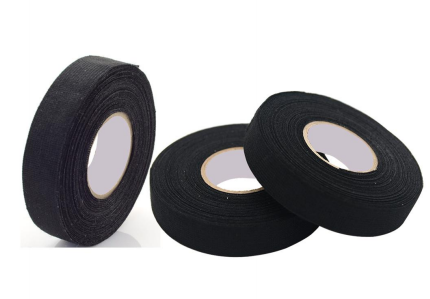Industrial Floor Tape Optimizing Safety and Efficiency in the Workplace
In various industrial settings, from warehouses to manufacturing plants, maintaining an organized and safe environment is paramount. One often-overlooked tool in achieving this goal is industrial floor tape. While seemingly simple, floor tape plays a crucial role in promoting safety, increasing efficiency, and ensuring compliance with various regulations.
What is Industrial Floor Tape?
Industrial floor tape, also known as safety tape or marking tape, is a durable adhesive tape specifically designed for use on floors. Made from a variety of materials such as vinyl, rubber, or plastic, this tape is engineered to withstand heavy foot traffic, machinery, and harsh chemicals. Available in an array of colors and patterns, industrial floor tape is used to create clear pathways, demarcate work zones, and indicate potential hazards.
The Importance of Safety
Safety is the foremost consideration in any industrial environment. According to the Occupational Safety and Health Administration (OSHA), slip, trip, and fall accidents account for a substantial percentage of workplace injuries. By using industrial floor tape to indicate walkways and hazard zones, businesses can significantly reduce the likelihood of these incidents. Bright colors like yellow or red can serve as warning signals, alerting employees to areas that require caution, thus helping to create a safer workspace.
In addition to marking walkways, floor tape can be used to outline equipment zones, ensuring that heavy machinery is clearly demarcated. This not only helps in navigating the workplace but also keeps employees at a safe distance, minimizing the risk of accidents caused by improper proximity to equipment in operation.
Enhancing Efficiency with Clear Pathways
In bustling industrial environments, efficiency is critical. Industrial floor tape aids in streamlining workflows by creating clear visual pathways, guiding employees where to go and what to do. By eliminating confusion regarding pedestrian and vehicular routes, this tape helps reduce unnecessary delays and enhances overall productivity.
industrial floor tape

Furthermore, floor tape can also be utilized in inventory areas to indicate storage locations. By marking specific spots for different items, employees can quickly find the materials they need, further enhancing operational efficiency. This organized approach to storing and retrieving inventory not only saves time but also helps minimize mistakes that could lead to production delays.
Compliance with Regulations
In many industries, adhering to safety regulations is non-negotiable. Many organizations are required to follow specific guidelines set by OSHA and other regulatory bodies regarding workplace safety. Utilizing industrial floor tape is often part of these compliance measures. By clearly marking hazardous areas and ensuring that safety protocols are visually reinforced, businesses can avoid potential fines and ensure a safer workplace.
Regular maintenance and updating of floor markings are essential. As organizations evolve, their needs change; thus, it’s important to periodically reassess the effectiveness of floor tape markings. High-quality industrial floor tape remains durable, but wear and tear can occur over time, requiring replacement or reapplication to maintain effectiveness in conveying safety messages.
Versatility of Industrial Floor Tape
One of the most attractive features of industrial floor tape is its versatility. It can be used in various settings, including factories, distribution centers, hospitals, and office spaces. Various styles, such as reflective tape, anti-slip tape, and floor stencils, allow businesses to customize their applications according to specific needs.
Reflective tape serves as an excellent solution for low-light areas, ensuring visibility even in dim conditions, while anti-slip tape can significantly reduce the risk of slips and falls in high-water or oily environments. Additionally, floor stencils can be used alongside tape to convey specific messages, further ensuring that safety and efficiency are communicated effectively.
Conclusion
In conclusion, industrial floor tape is more than just a marking tool; it is an indispensable element of a well-structured industrial workspace. By prioritizing safety, enhancing efficiency, and ensuring compliance with regulations, businesses can create a safer and more organized environment. As industries continue to recognize the importance of proactive safety measures and operational optimization, the use of industrial floor tape will undoubtedly remain a vital strategy for success. Its role in promoting a culture of safety and efficiency cannot be overstated, making it a worthwhile investment for any industrial operation.
-
Self Amalgamating Tape: Redefining Electrical Insulation and ProtectionNewsAug.07,2025
-
Seal Strip Solutions: Revolutionizing Energy Efficiency and Comfort in Modern BuildingsNewsAug.07,2025
-
High Voltage Electrical Tape: Powering Safety and Reliability in Modern InstallationsNewsAug.07,2025
-
Flex Tape Waterproof: Transforming the Future of Instant RepairsNewsAug.07,2025
-
Elevate Electrical Safety Standards with High-Performance PVC Electrical TapeNewsAug.07,2025
-
Butyl Rubber Tape: The Ultimate Solution for Reliable Sealing and WaterproofingNewsAug.07,2025
